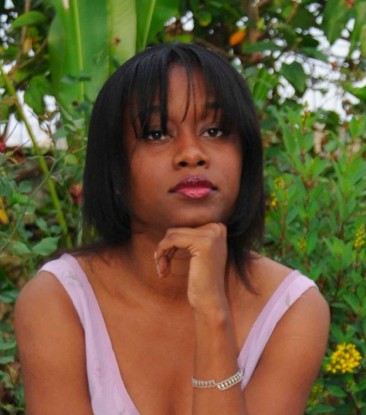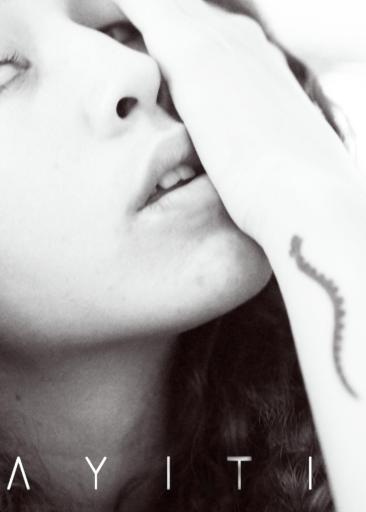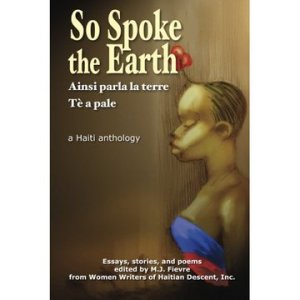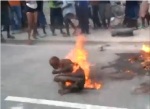Sa w’ap gade la-a?
Bra ki rache?
Je ki pete?
Tèt ki kraze?
Fanm k’ap trepase?
Yon moman ki brote vant mwen ale?
Ki foto w’ap pran la-a?
Ou klap! klap!
Ou voye youn nan Nò
Yon lòt nan Sid
Pòtre m’ fè letoudimond!
Yon ti vè diven nan dyòl ou
Pye w’ sou yon ti chèz ba
W’ap dèz kò w’
Mizè moun se yon bèl woman
Van soufle dife
Dife fè flanm
Flanm propaje
Flanm rive devan pa pòt ou
Ou gen estenktè?
Yon milyon diskou
Kostim ak brezo pou sove Limanite
Donasyon adwat gala agòch
Adopte se solisyon
Any! W’ap metrize lodyanz konsyans ou!
Men Dyab!
Latè se adrès pa w’ tou!
Dlo, Van, Dife ak Tè
Se istwa pa nou tout!
Bann foto sa yo w’ ap gade la-a,
Siman se
Imaj ou….
Lavi w’…
Demen w’…
***
Pascale DOXY is an artist born and raised in Port-au-Prince, Haiti. While working as both a teacher and a school administrator in the Caribbean country, she managed to write several books for children grades 1 to 11: Guides de Savoir-vivre.
Following the 2010 earthquake, Pascale moved to Florida, where she has showcased her paintings and poems about the tragedy. She is currently planning other exhibits and looking forward to publishing her children and young adult stories.
Click here to read another poem by Pascale and here to appreciate her visual art.

Pascale Doxy




